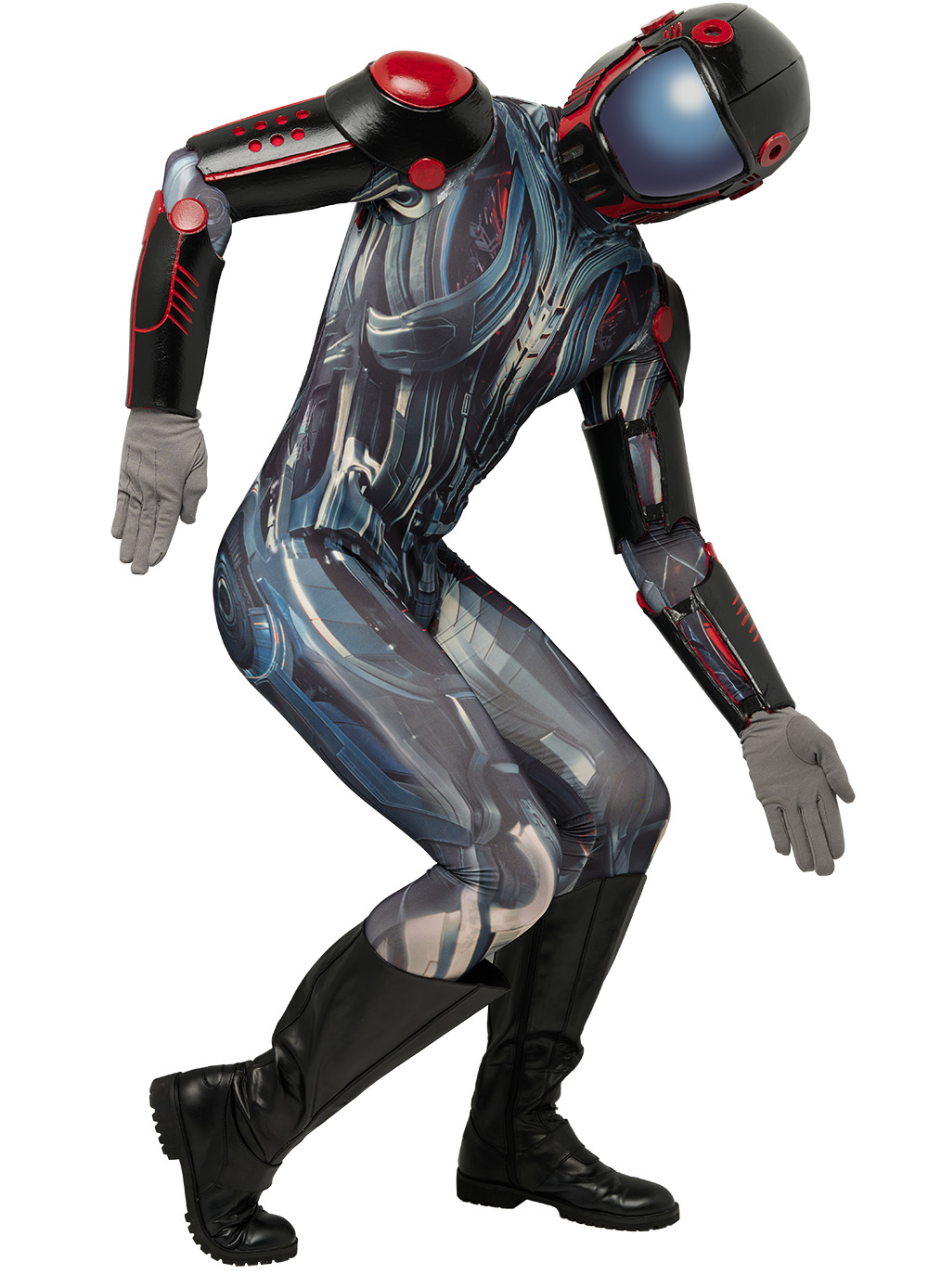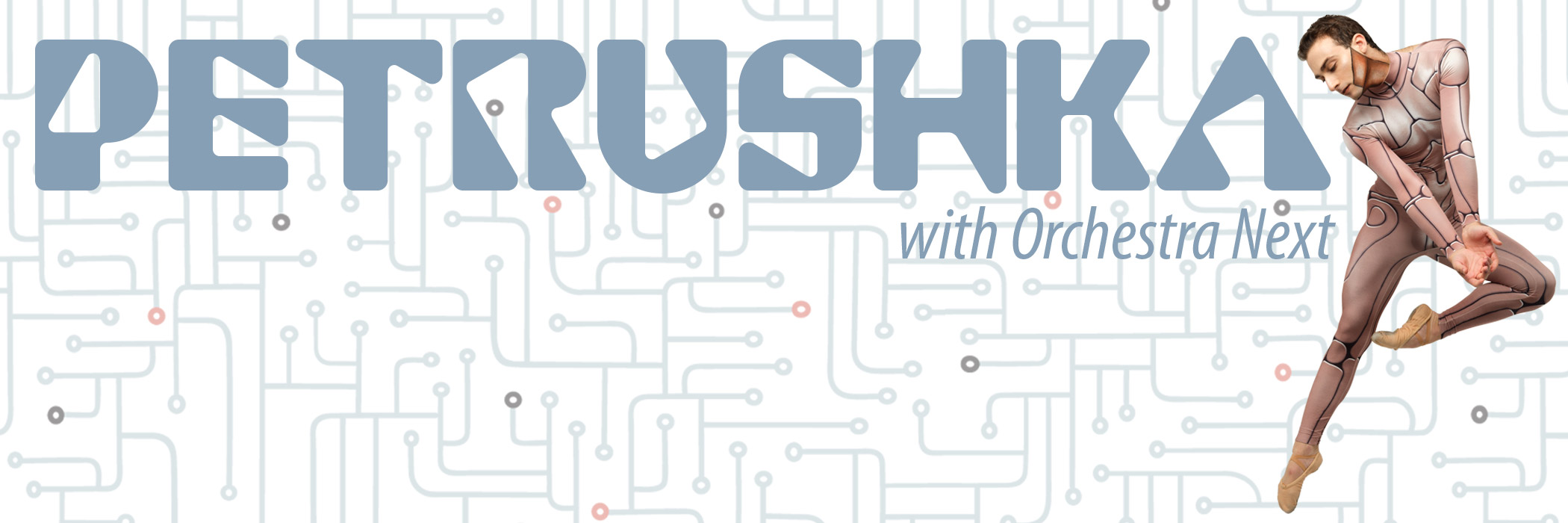
Petrushka
With live music by
Sat, Feb 11, 2023 | 7:30 pm
Sun, Feb 12, 2023 | 2:00 pm
Silva Concert Hall | Hult Center
The world premiere of Suzanne Haag’s Petrushka is a futuristic and contemporary twist to this classical ballet. Follow Petrushka, an empathetic android, on this discovery of love, jealousy, and revenge as Orchestra Next plays Igor Stravinsky’s score live. Audiences will also experience Toni Pimble’s The Rite of Spring and Melissa Bobick’s Apollon Musagète on this all Stravinsky program.
The Rite of Spring Synopsis
Since its inauspicious debut, ballet companies all over the world have presented many different versions of The Rite of Spring. I envisioned this work as taking place in a prehistoric era in which the dancers are at their most fundamental. The movement vocabulary is contemporary and earthy. The ballet opens with the coming of spring, and approach of the mating season. The women descend to the stage floor to enjoy the warm season. They are interrupted by a group of men. The men and women eye one another with increasing tension until they break the bounds of their group into a frenzy of mating. One woman is not chosen, and the ballet takes a turn descending into violence as the men evict the woman from the group and eventually destroy her. The piece has become a psychological analysis of human interactions at their most basic. The score for The Rite of Spring is very challenging for choreographers and remains Stravinsky’s
magnificent masterpiece of the 20th century.
— Toni Pimble
Apollon Musagète Synopsis
In the process of conceiving new choreography for Stravinsky’s iconic Apollon Musagète, I have been eager to explore the root of Apollo’s identity within his own mythology. In the Naissance d’Apollon scene, we begin our story with the exploration of Apollo’s coming of age as he discovers his gifts, his calling, and his true identity. This then allows us to follow Apollo as he begins his life-long conversation with three of his muses. Through the solos and duets that follow, we witness the muses, who already know his full potential, as they guide Apollo through the formative narrative that begins his life. It is as we pass through these moments that we see the changing relationship between Apollo and his muses; moving from the reciprocal relationship of a young man in search of his truth to the inspired man that has been destined as a god for all eternity. It is this journey of self-discovery that makes Stravinsky’s Apollon Musagète a timeless work that continues to speak to all of us.
— Melissa Bobick
Petrushka Synopsis
In a future where technology does the emotional heavy lifting, human citizens on a space station are introduced to new technology. One citizen provides a chance to live in a virtual world of their choosing. Everyone is fascinated until The Builder enters showing her latest AI creations, three androids each with a specific function: The Warrior, programmed for defense, The Companion, programmed to combat loneliness, and Petrushka, a new model that has been programmed with empathy and human emotions. The crowd is enthralled by the three creations.
Petrushka is alone, struggling with his programmed feelings and his deep love for The Companion who is more interested in The Warrior. He understands that he is not human and this brings him great sorrow.
As The Builder fixes The Warrior, she remembers a time when she was happy with a human who looked just like Petrushka. She recalls their relationship and her loneliness as he leaves her. She has built Petrushka in his likeness, but though she programmed Petrushka with human emotions, he does not love her back. Angrily she leaves the module. The Companion enters to give attention to The Warrior, they are interrupted by Petrushka, begging for The Companion to notice him.
The Citizens are busy at work making AI beings for The Builder. Petrushka emerges and notices that the citizens are building androids that look just like him. Understanding that he is not as unique as he thought he blames The Builder. He runs to tell The Companion. The Warrior, thinking that Petrushka is attacking The Companion, violently breaks Petrushka to the horror of the crowd. Petrushka was so lifelike they believe that he has been killed. The Builder returns and shows the crowd that Petrushka is merely a machine, one that can easily be built again. The crowd disperses as The Builder holds the lifeless frame of Petrushka and is haunted by thoughts of the human he was modeled after. Could he have been real? Is she?



